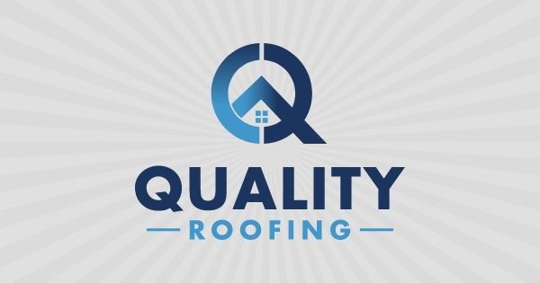Compared to national averages, the lifespan of a roof in Florida is short. The main reason for a shorter roof lifespan is the Florida climate, which includes salt-heavy air, high humidity, hot temperatures, and high winds. The annual hurricane season may bring Category 3 to 5 storms that can weaken or completely damage a roofing system.
Still, it is possible to extend the life of your roof with proper installation and ongoing maintenance each year. A roofing contractor can perform an annual inspection and make repairs or upgrades to your roof as needed.
How Long Does Each Roofing Material Last?
One of the factors that determine roofing longevity is the type of roofing material you choose for your home.
Asphalt Shingles – 15 to 30 Years
Today’s asphalt shingles are built to withstand harsh environments. Asphalt shingles consist of multiple reinforced layers of asphalt, fiberglass or felt paper, and ceramic granules. This combination of materials holds up well in high-humidity climates. Shingles can withstand wind speeds of up to 150 mph, making them ideal in hurricane zones.
Wood Shingles – 10 to 40 Years
Wood shingles offer a tailored or rustic look that suits a timeless exterior home design. Although wood shingles are pricier than standard asphalt shingles, they can last up to 40 years with routine maintenance. However, installing wood shingles in a humid or rainy climate can cause the shingles to age prematurely. Wood shingles are also vulnerable to moss, mold, and algae. Before you schedule a professional roofing installation, speak with your contractor about whether roof shingles belong to your home.
Metal Roofing – 15 to 50 Years
If you are looking for a more durable solution to your roof, you may want to choose metal roofing. With routine care, metal roofs can last up to 50 years in Florida weather. Metal roofs are made from galvanized steel coated with zinc and roll-formed into corrugated sheets. The metal is reinforced to withstand high-humidity climates like the climate of the coast. Metal roofs can also withstand high winds of up to 180 mph.
How the Florida Climate Can Damage Your Roof
When it comes to the structural stability of your home, the Florida climate is not forgiving. Several elements of Florida weather can affect the longevity of your roof.
- Hurricanes/tropical storms
- Salt spray
- High humidity
- High wind
- Hot temperatures
- Hail
Hurricane damage can happen quickly or over time. A hurricane can blow a roof off a house or cause damage through falling trees or flying debris in some cases. However, a hurricane can also weaken a roof without tearing it off, making it more vulnerable to the Florida climate over time. For instance, high winds and heavy rains can cause some roof parts to loosen, allowing air and water into the attic.
Sea spray can have an impact on almost any type of roof over time. Seaspray contains a high concentration of salt, which can corrode a roof over a long period. Fortunately, manufacturers now engineer asphalt shingle and metal roofs that are resistant to salt spray. Metal roofs are reinforced with a weather-proof coating that prevents salt spray from invading the roofing system.
Roof Maintenance: The Key to Roof Longevity
Even the most well-designed product requires professional roof maintenance according to manufacturer specifications. If you neglect your roof, you may have to replace it prematurely or spend more money on professional roofing repairs. If you want your roof to last in Florida, then take care of it in the following ways:
Clean the Gutters
Dirty gutters do not just affect the gutters. They also affect the roofing system. Buildup in the drains leads to pooling water, mold, and structural damage – all of which cause leaks and drafts in the roofing system. How often you clean the gutters depends on how quickly they fill up with leaves, branches, or other debris. At a minimum, you should plan to clean out the gutters twice a year.
Schedule a Professional Roof Inspection
In a moderate climate, you may only need a professional roof inspection once every two or three years. However, in a more volatile climate like on the coast, you may want to contact a roofing contractor in Florida, to inspect your roof at least once a year. Ideally, you may want to get your roof inspected before the hurricane season begins.
Fix Problems as They Occur
Roofing problems do not go away, but rather they only get progressively worse. So, repair the roof before small issues turn into costly repairs. For instance, if you see a few shingles missing on the roof, contact a roofing contractor to replace them. One missing shingle can lead to thousands of dollars in leak repairs.
Keep the Roof Well-Ventilated
In a hot and humid climate, the primary purpose of roof ventilation is to remove both heat and humidity from the attic. This reduces the building’s cooling load and the amount of work the air conditioner must put out to cool your house.
Choose a Quality Roofing Installation
If you want your roof to last, you need to start by using quality materials and having them installed by a reputable roofing contractor in Florida. If you cut corners, buy cheap materials and go with the lowest bidder just to save money, you are likely to pay for a roof replacement far sooner than expected.
Schedule a Free Roof Inspection
Quality Roofing offers premier roofing services for homeowners in Florida. To schedule a free roof inspection, call (850) 753-0041 or fill out the quick form on our contact page.
The post How Long Does a Roof Last in Florida? appeared first on Quality Roofing Solutions.

